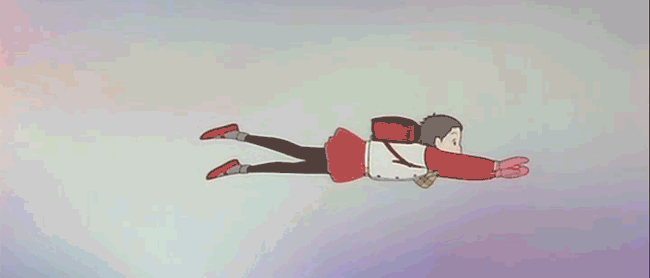“Only Yesterday” Review: This Coming-of-Age Captivates
- Robyn

- Mar 1, 2016
- 2 min read
Updated: Dec 24, 2020

If you have the opportunity to see Japanese animated drama film Only Yesterday this week, I implore you to do so, as it is a triumph of both visual storytelling and emotional resonance. Hailing from Hiyao Miyazaki’s famed Studio Ghibli and acclaimed director Isao Takahata (Grave of the Fireflies, The Tale of the Princess Kaguya), this lyrical meditation on childhood memory was a surprise hit when it bowed in 1991, becoming Japan’s highest-grossing film that year. Thanks to powerhouse distributor GKIDS, it is now playing in American theaters for the first time.
Only Yesterday is a bildungsroman centered on Taeko (Daisy Ridley), an unmarried 27-year-old office worker who is happy to use all of her meager vacation time laboring in the countryside far away from her uninspiring life in Tokyo. When she joins a safflower farm for a week, she begins to ruminate on her memories of fifth grade in 1966, flashing back to childhood moments both joyous and shameful. Like Margaret Atwood’s novel “Cat’s Eye” or Woody Allen’s comedy “Radio Days,” the film’s beauty relies in illuminating the dichotomies between two main characters: the protagonist as a child, when life’s highs were higher and the lows were lower, and the protagonist as a wise(r) adult, humorously interpreting their former self from hindsight.
The Taeko of present is at a precipice in her life, unsure of how she got to where she is and lost as to what she wants going forward, especially when it comes to her growing friendship with passionate agriculturist Toshio (Dev Patel). Stepping back into these reveries (and herself as a bright, lonely, misunderstood ten-year-old), allows her to comprehend her current identity in a completely new light. If you’ve ever questioned what your younger self would think of you as you are now, this story will move you.
Despite its realism, Takahata makes excellent use of the medium, interspersing his gorgeously-drawn film with surrealistic flourishes that perfectly encapsulate the childhood feelings of impenetrable despair and infinite possibility. In one of the most memorable sequences, young Taeko shares an innocently romantic moment with a crush, and after they depart her little body is shown blissfully walking up right into the sky and swimming through clouds. Similarly, the powerful closing scene that finally melds the two Taekos may well bring tears to your eyes. If you’re a fan of Miyazaki’s other work, particularly his tales of humankind’s relationship with the natural world, don’t miss your chance to experience a classic.





Comments